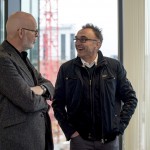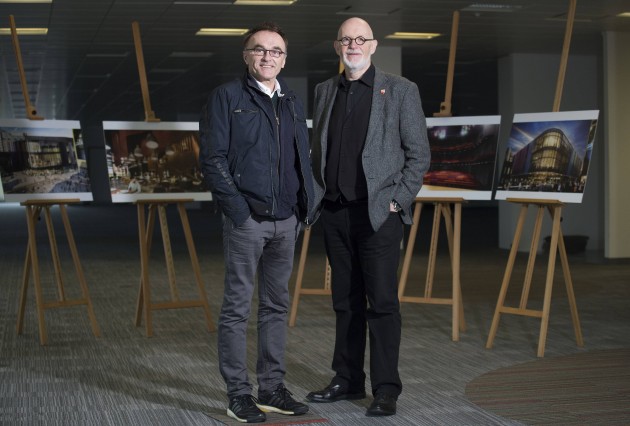Danny Boyle speaks exclusively to Creative Tourist’s Susie Stubbs about art, the economy, being a patron of HOME and plain speaking.
Danny Boyle isn’t one to mince his words. The architect of Britain’s spectacular Olympics opening ceremony, the filmmaker behind such cinematic successes as Slumdog Millionaire and 127 Hours, is a plain speaking man. He has vociferously defended regional theatre against “outrageous” funding cuts. He once said that to be a filmmaker “you have to be psychotic”. He even managed to reference his north Manchester hometown in the acceptance speech he gave at the 2009 Oscars.
There’s a simple reason for Danny Boyle’s ability to speak his mind: his northern roots. “I am influenced by where I come from, I feel it very strongly,” says the Radcliffe-born film and theatre director. “There is a great sense of perspective you get coming from an industrial area, that’s had tough times but has an independence of thinking. It gives you pride but also humility when working in a huge metropolis like London. You speak honestly and plainly to people.”
These northern roots matter in other ways. Boyle’s earliest cultural experiences came courtesy of “weird art films from Europe” watched in a cinema in Hulme, while one of his first jobs was as an usher at the Bolton Octagon. It was a job that opened his eyes to the possibilities of theatre.“I was just – ‘if you haven’t been to the theatre just go’. That live sense is one of the wonders of the world,” said Boyle in an interview in 2010.

That Manchester City Council has funded HOME – along with support from Arts Council England – is extraordinary. Yet it has been done for sound economic reasons, as Boyle is only too aware of. “It’s blindingly obvious. Britain is not going to make mass-produced circuit boards anymore – probably – but the world does look to us for art and culture. The world is inspired by our creativity and one effect of that is an extraordinary economic output.” He has a point. The relatively modest budget of Slumdog Millionaire, for example, was outstripped by its box office performance: it became Fox Searchlight Picture’s highest- grossing film. “But look at JK Rowling, that one woman sitting in a café on her own trying to get that book written, that one woman has done an incredible amount for the British economy,” argues Boyle. “Supporting the arts pays huge dividends, not just for the wellbeing of the people experiencing it but for the country as a whole.”

Danny Boyle may be known for his plain speaking, but he’s also known for his passion. A passion for film, for theatre, for the possibilities offered by the arts – in Manchester and, via the young people who will get their first taste of art and film at HOME, eventually spreading out across the world.